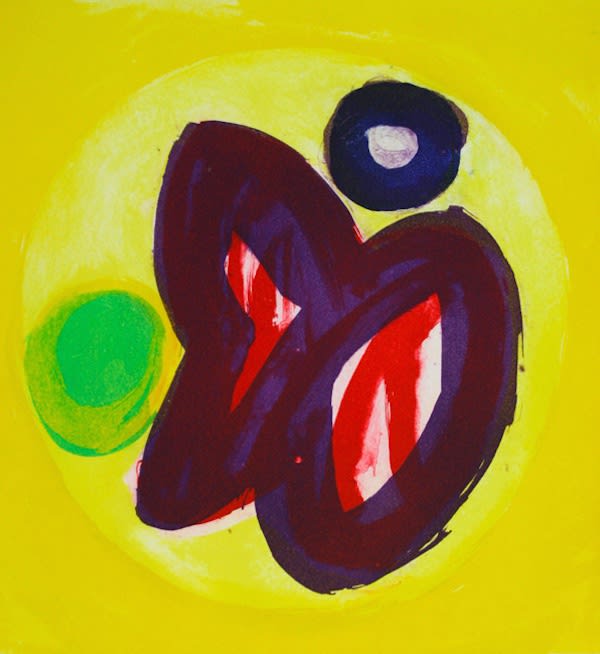John Hoyland was one of Britain's leading abstract artists. From the early 1960s he achieved international recognition for a body of work that eliminated literal depiction of the observed world using shape, colour, texture and the movement of paint or ink to evoke a world of emotion and imagination.
In the course of his career Hoyland developed a strong attachment to America. He first visited in 1964 and this saw a dramatic change in his work. By the mid-1960s he had forged a distinctive personal style that advanced a startling use of simple shapes and high-key colour. These artworks defied the modernist insistence on a flat picture surface and emphasised an illusion of space. Hoyland set up a studio in New York in the late 1960s and in 1972 became Professor of Fine Arts at Colgate University.
However, Hoyland always retained a strong affinity with London, which remained his home. He had many solo shows and participated in numerous group exhibitions including those at the Tate, the Barbican Gallery, the Serpentine Gallery and the Galerie Josine Bokhoven in Amsterdam.
Hoyland also taught at Chelsea School of Art, St Martin's, the Royal Academy Schools and the Slade. In 1991 Hoyland was elected RA, and in 1999 he was appointed Professor of Painting at the Royal Academy Schools. Well into his eighth decade, Hoyland was still vigorously exploring new ideas through his painting and printmaking and was hugely influential both in the UK and abroad. He died in the summer of 2011.
